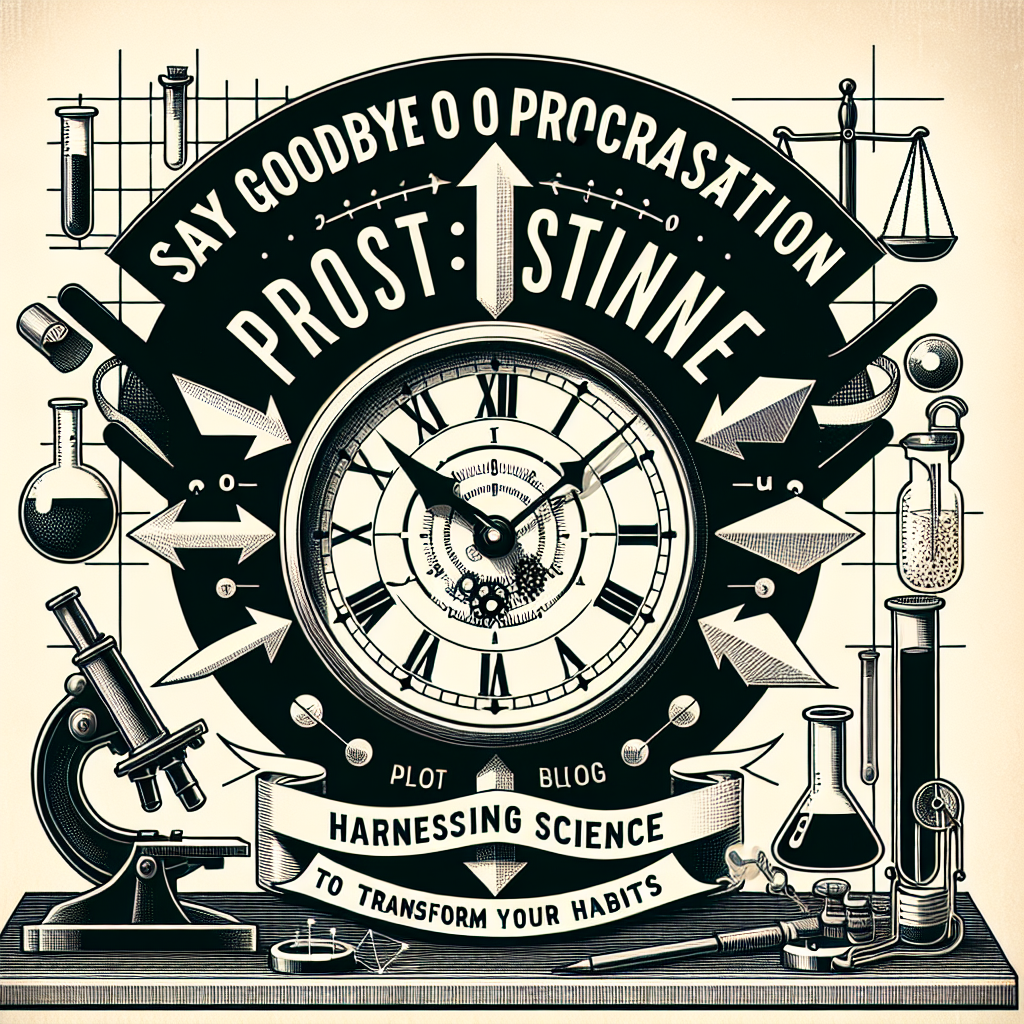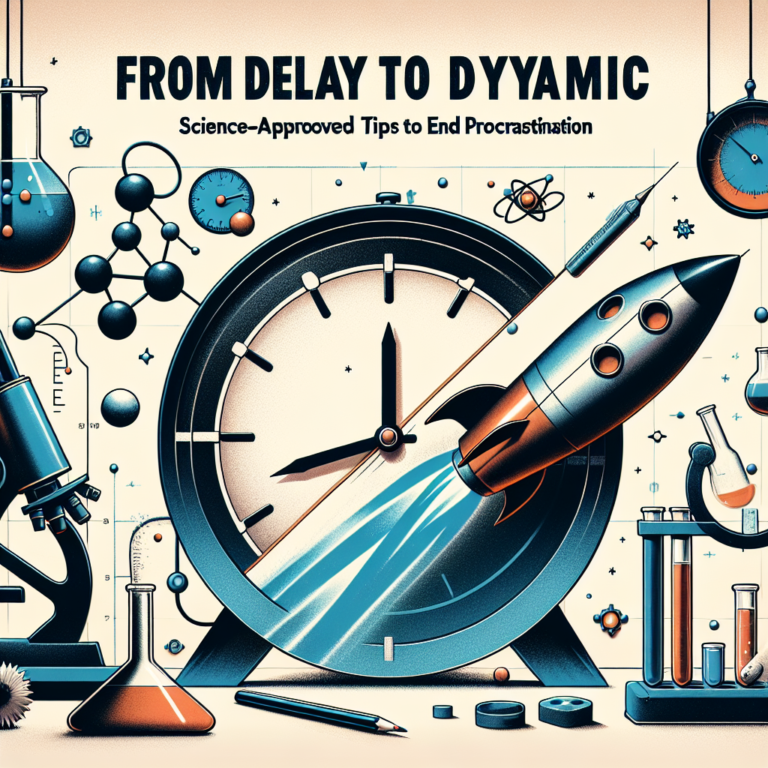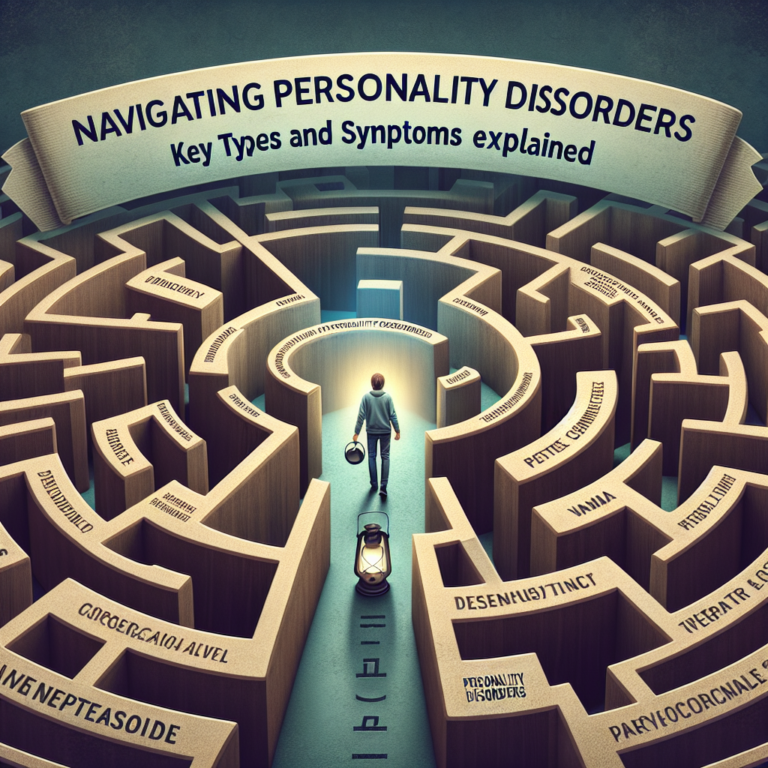
Say Goodbye to Procrastination: Harnessing Science to Transform Your Habits for Lasting Success
Introduction
Procrastination is a silent thief that steals our time, ambitions, and ultimately our happiness. In a world that constantly demands productivity, the battle against procrastination is one every individual faces at some point in their lives. Imagine being able to transform your habits and banish that nagging tendency to delay important tasks. By harnessing the science behind our motivations, behaviors, and brain functions, we can say goodbye to procrastination and open the door to a more productive and fulfilling life.
This article will guide you through proven strategies rooted in psychological research, empowering you to take action and transform your habits. Let’s dive deep into the science of procrastination and explore actionable insights that can revolutionize your approach to work and life.
Understanding Procrastination: The Science Behind the Habit
What is Procrastination?
Procrastination involves delaying tasks despite expecting negative consequences. According to Dr. Piers Steel, author of "The Procrastination Equation," about 20% of adults identify as chronic procrastinators. Understanding the underlying reasons for procrastination can help in effectively addressing it.
The Psychology of Procrastination
Research indicates that procrastination isn’t merely a time-management issue; it’s often linked to emotions. Often, individuals procrastinate to avoid feelings of boredom, anxiety, or self-doubt. When an individual lacks confidence in their abilities or feels overwhelmed by a task, they might choose to distract themselves with more enjoyable activities.
Cognitive Dissonance: The Inner Conflict
Cognitive dissonance arises when one’s actions conflict with their beliefs. For instance, if you value success but procrastinate on a critical project, this conflict leads to stress. This is a crucial element in understanding how to say goodbye to procrastination. Acknowledging and confronting this dissonance can motivate you to change behaviors.
Case Study: The 2018 Student Procrastination Survey
A study conducted among university students revealed that 70% admitted to procrastination due to anxiety and fear of negative outcomes. Those who utilized time-management strategies and emotional coping techniques reported a significant reduction in procrastination behaviors.
Strategies to Say Goodbye to Procrastination
1. Shift Your Mindset
Changing your perspective on tasks can significantly impact your habits. Instead of viewing a task as a chore, try reframing it as an opportunity for growth or learning.
- Technique: Use positive affirmations to reinforce your abilities. For instance, say, "I am capable of completing this project successfully."
2. Break Tasks into Smaller Steps
Large tasks can seem daunting and overwhelming, leading to procrastination. Breaking tasks into smaller, manageable parts can alleviate this fear.
- Tip: Use the SMART criteria (Specific, Measurable, Achievable, Relevant, Time-bound) to set smaller goals.
Table: Breakdown of a Major Task Using SMART Criteria
| Task | Specific | Measurable | Achievable | Relevant | Time-bound |
|---|---|---|---|---|---|
| Write a Research Paper | Outline chapters and sections | Draft 5 pages per week | 4 pages by next month | Needed for course completion | Complete in 4 weeks |
3. Use the Pomodoro Technique
The Pomodoro Technique involves working in focused bursts (typically 25 minutes) followed by a short break. This method helps maintain energy and focus, making tasks less intimidating.
- Implementation: Set a timer for 25 minutes and commit to working without distractions. Use breaks to recharge.
Case Study: Employee Productivity Experiment
A large tech company introduced the Pomodoro Technique in its workflow, resulting in a 25% increase in productivity. Employees reported feeling less fatigued and more focused during their work hours.
4. Establish a Routine
Creating a routine can significantly reduce procrastination. A structured day helps reinforce good habits and minimize distractions.
- Strategy: Start your day with the most challenging tasks and schedule breaks to maintain energy levels.
5. Cultivate a Reward System
Reward yourself for completing tasks to reinforce positive behavior. This can create a cycle of motivation where you look forward to accomplishing tasks.
- Example: After finishing a report, treat yourself to a favorite snack or a brief walk outside.
Case Study: Habit Formation and Rewards
A behavioral study highlighted that participants who received immediate rewards for task completion developed positive habits faster than those who did not. The connection between action and reward is essential for saying goodbye to procrastination.
The Role of Environment in Procrastination
1. Optimize Your Workspace
An organized and inviting workspace can reduce distractions and enhance focus. A cluttered environment often mirrors a cluttered mind.
- Action Step: Dedicate time to organize your workspace, eliminating items that distract you from your tasks.
2. Limit Digital Distractions
In today’s digital age, notifications can easily derail your workflow. Consider silencing alerts on your phone or using apps that block distracting sites during work hours.
Case Study: Digital Detox Success Stories
Companies that implemented digital detox programs found that employee productivity increased by 35%. Limiting distractions allowed for deeper concentration and more effective task management.
Emotional Regulation: Confronting Fear of Failure
1. Embrace Imperfection
Fear of failure is a common barrier to starting tasks. Remember that perfection is not achievable, and accepting mistakes as learning opportunities can ease this fear.
- Psychological Tip: Engage in self-compassion and remind yourself that everyone experiences setbacks.
2. Visualization Techniques
Visualizing successful completion of tasks can improve motivation and reduce anxiety. The brain often responds to mental imagery as it would to actual experiences.
- Exercise: Spend a few minutes each day imagining the successful completion of your goals, focusing on how you feel afterward.
Conclusion
Saying goodbye to procrastination is not just about managing time; it’s about understanding ourselves and our motivations. By applying the science behind our behaviors and emotions, we can transform our habits and lead more productive lives.
Actionable Takeaway: Start implementing one or two strategies outlined in this article today. Remember, small steps lead to significant changes over time.
FAQs
1. What are the main reasons people procrastinate?
- Fear of failure, perfectionism, lack of motivation, and overwhelming tasks are primary reasons for procrastination.
2. How can I stay motivated when tackling a challenging task?
- Break the task into smaller parts, establish a routine, and reward yourself for each completed step to maintain motivation.
3. Is procrastination a mental health issue?
- While procrastination is not classified as a mental health disorder, it can be associated with anxiety, depression, and low self-esteem.
4. Can procrastination ever be beneficial?
- Procrastination can sometimes lead to last-minute bursts of creativity and focus. However, it’s more effective to manage time and tasks proactively.
5. How can I measure my progress in overcoming procrastination?
- Regularly assess your task completion rate and reflect on your emotional responses to tasks to determine improvements in your procrastination habits.
By embracing the insights provided in "Say Goodbye to Procrastination: Harnessing Science to Transform Your Habits," you can embark on a journey of self-discovery and empowerment, ultimately enhancing your productivity and quality of life.

















